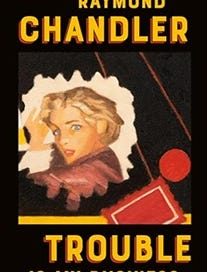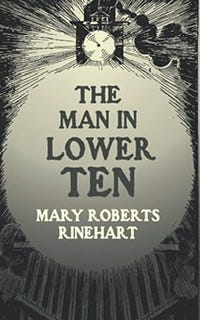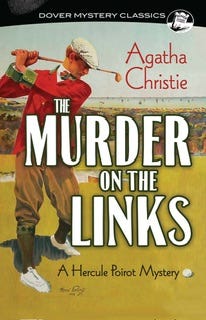I like to read fiction, especially short stories like those of Flannery O’Connor, Andre Dubus, or John Cheever, who once said, “fiction can contribute to our understanding of one another and the sometimes bewildering world around us.”
But, writing the past ten years, I’ve never written fiction; not sure I could. My challenge would be developing dialogue; but I came across the following advice of author David Halberstam directed to wannabe writers of dialogue:
Read good detective fiction. I don’t think anybody does narrative structure better than good detective writers.
Of course, narrative nonfiction has been on the rise for years and Halberstam is among the best; others come to mind, like Gay Talese (“Frank Sinatra Has a Cold” is one of the best essays I’ve ever read).
But back to detective fiction, which, before Halberstam set me on this course, I mostly ignored. Maybe you’ve been a fan of the genre, but I fell victim to the common misconception that while detective fiction may be acceptable entertainment it could not be taken with true seriousness.
However, in the past year - paying close attention to structure - I read several books by Raymond Chandler, Erle Stanley Gardner, and Mary Roberts Rinehart, and found that Halberstam’s advice is on point.
But, forget about writing; I have a theory that reading detective fiction might make us better conversationalists, right? Isn’t all conversation narrative structure? So, if we can learn narrative structure from reading detective fiction maybe we become better storytellers by reading detective fiction.
Think about it: Storytelling is what we do, everywhere, all the time. To quote Salmon Rushdie:
Animals, as they pass through the landscape, leave their tracks behind. Stories are the tracks we leave.
I made a discovery a few days ago that tends to support my theory. I came across the doctoral thesis of Father Patrick Langan, LC, titled “Detective Narrative Thinking.” Father Langan, a university professor at the Legionaires of Christ Seminary in Connecticut, researched and prepared the paper for his Doctorate in Humanities, History, Philosophy, and Esthetics.
He writes of the interchangeability of the words “narrative” and “story” (Children don’t say “tell me a narrative”).
He explains at length detective thinking and narrative thinking. Here are two sentences from his explanation:
“When we talk about narrative thinking and detective thinking, it is not just about resolving crimes. This form of thinking has many applications.”
I propose one of those applications is the making of better storytellers and conversationalists.
You’ll excuse me now; I’m off to a round of golf with Agatha Christie.






